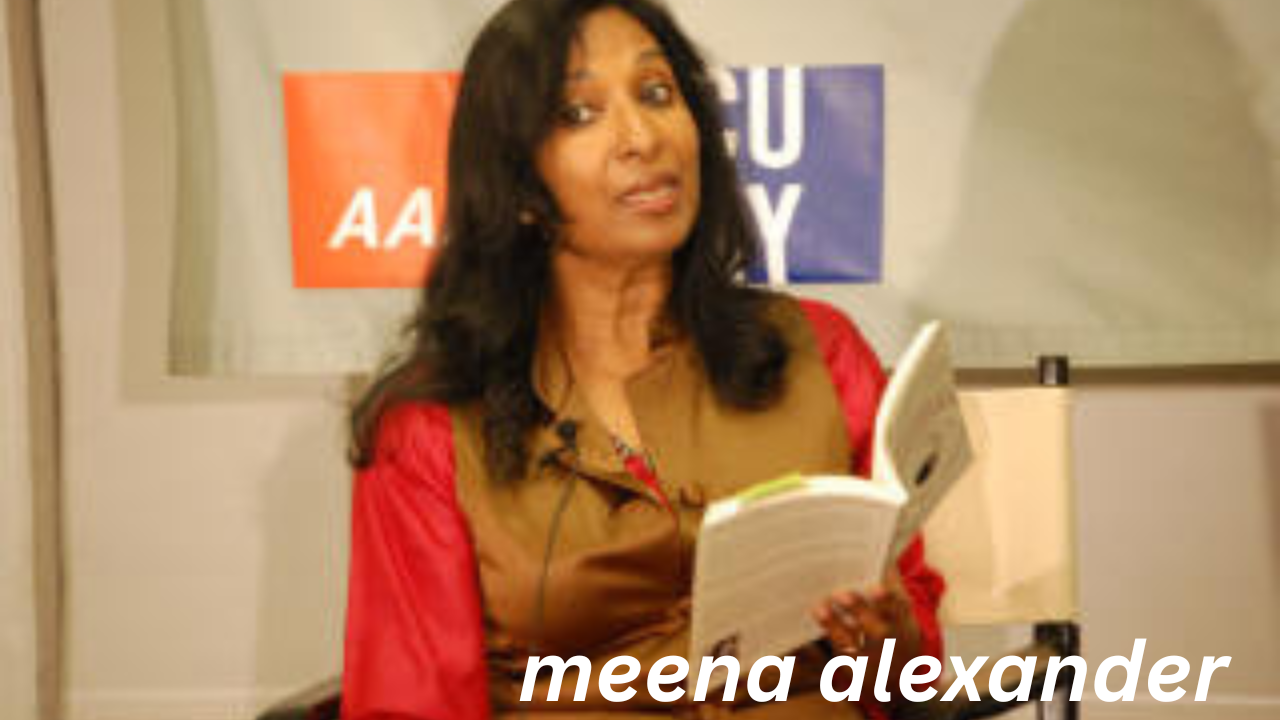Meena Alexander stands as one of the most powerful poetic voices to emerge from the Indian diaspora. Known for her rich exploration of identity, migration, and memory, Alexander’s work bridges continents and cultures with a rare emotional depth. Born in India and raised in Sudan, her writing weaves together the threads of her transnational experience to form a vibrant meena alexander resilience and longing. As a poet, essayist, and scholar, Alexander used language not just as a tool of expression but as a form of reclamation—reclaiming history, space, and self in the face of displacement.
Her literary contributions resonate with readers around the world, particularly those who grapple with the complexities of home and identity. In a globalized era, where borders often define belonging, Meena Alexander’s voice offers a counter-narrative rooted in fluidity and transformation. Whether she’s chronicling the silence of trauma or the burst of memory in exile, her work remains deeply introspective and politically engaged.
This article explores the life and literary journey of Meena Alexander. From her early years to her most acclaimed works, from the themes she championed to the legacy she leaves behind, we dive into the core of what made her a unique and unforgettable figure in postcolonial literature.
Early Life and Education

Meena Alexander was born in Allahabad, India, in 1951, and moved to Sudan at the age of five, where her father worked as a scientist. This early cultural shift laid the foundation for her lifelong exploration of displacement and identity. Growing up in Khartoum, she navigated different linguistic and cultural terrains, becoming fluent in English, Malayalam, and Arabic. This multilingual fluency would later inform her literary voice, lending her work a rich, layered texture that reflected her multicultural reality.
Alexander began writing poetry at a young age, publishing her first collection, The Bird’s Bright Ring, at just 18. Her academic journey took her to the University of Khartoum for undergraduate studies, followed by doctoral work at the University of Nottingham in England, where she specialized in English and French literature. These formative years immersed her in diverse literary traditions, from classical Indian poetics to Western modernism.
Her education and lived experiences across continents enabled her to challenge the limitations of identity often imposed by geography and politics. As a young woman of color in academic and literary institutions, she constantly questioned fixed notions of belonging. These questions became central to her work as she developed a poetic voice uniquely equipped to speak to the emotional truths of those living between cultures.
Literary Career and Major Works
Meena Alexander’s literary career spanned over four decades and encompassed poetry, memoir, fiction, and critical essays. Her early poetry, written during her time in India and England, focused on the personal, but even then hinted at the themes that would dominate her later work—displacement, gender, and the search for home.
Her breakthrough collection, Illiterate Heart (2002), won the PEN Open Book Award and brought her widespread acclaim. In this collection, Alexander delves into the intricacies of exile and the fragmented self. Her voice, simultaneously vulnerable and defiant, speaks to the diasporic condition in ways that are both intimate and universal. Raw Silk (2004) and Birthplace with Buried Stones (2013) followed, further deepening her exploration of loss, memory, and transformation.
In addition to poetry, Alexander made her mark with the memoir Fault Lines (1993), a powerful narrative that blends personal reflection with historical consciousness. The memoir is structured around a traumatic experience of sexual violence, which she revisits in order to interrogate the silences imposed by both patriarchy and postcolonial societies. It stands as a courageous and genre-defying work, positioning her as a leading feminist voice.
Her essays and academic writing, particularly in postcolonial and feminist theory, further underscore her intellectual range. Alexander was not only a poet of feeling but a scholar of ideas, engaging with the political dimensions of literature throughout her career.
Themes and Style in Meena Alexander’s Work
One of the most striking aspects of Meena Alexander’s work is its thematic complexity. At the heart of her poetry lies the experience of diaspora—not merely as geographical displacement but as an existential condition. Her poems often speak from a liminal space, caught between countries, languages, and selves. She explores how exile fragments the self, yet also offers the possibility of reinvention. This ambivalence is what gives her poetry its emotional resonance and philosophical depth.
Feminism also plays a central role in Alexander’s work. Her writing challenges traditional representations of the female body and voice. In Fault Lines, for example, she boldly confronts the trauma of sexual violence and reclaims her narrative through poetic expression. Her work emphasizes the body not just as a site of suffering, but as a canvas of resistance and memory.
Another recurring motif is the use of memory as a political tool. Alexander’s poetry is replete with references to historical trauma—colonialism, war, and migration—and she uses personal memory as a means of confronting these collective wounds. In doing so, she reclaims history from dominant narratives and centers marginalized voices.
Linguistically, her style blends lyrical intensity with intellectual rigor. She often uses imagery drawn from nature, myth, and classical literature, filtered through a modern, cosmopolitan sensibility. Her language is rich yet restrained, offering clarity without sacrificing complexity. This balance makes her work accessible yet profoundly layered.
Legacy and Influence
Meena Alexander’s influence extends beyond the world of literature. As a professor at Hunter College and the Graduate Center of the City University of New York, she mentored countless students and emerging writers. Her commitment to teaching mirrored her commitment to poetry—rooted in empathy, inquiry, and transformation. She believed literature could serve as both mirror and map, helping individuals navigate the complexities of their identities and histories.
Her legacy is particularly strong in postcolonial and feminist literary studies, where her works are frequently included in university syllabi across the world. Scholars continue to study her writing for its unique blend of personal lyricism and critical engagement. She opened doors for other diasporic writers, especially women of color, to articulate their experiences without compromise.
Alexander’s accolades include the PEN Open Book Award, fellowships from the Guggenheim Foundation and Fulbright Program, and numerous literary honors in both the United States and India. But perhaps her greatest achievement lies in the way her work continues to resonate. Her poetry speaks not only to the immigrant or the academic, but to anyone who has ever felt the pull of home across distant horizons.
Conclusion
Meena Alexander’s body of work offers a powerful testament to the human spirit’s ability to find meaning in fragmentation. Through poetry, memoir, and scholarship, she crafted a voice that is both deeply personal and profoundly political. Her exploration of exile, memory, and identity continues to inspire readers to question, to remember, and to reclaim their own stories.
FAQs
What are some of Meena Alexander’s most famous works?
Notable works include Illiterate Heart, Raw Silk, Fault Lines, and Birthplace with Buried Stones.
How did her background influence her writing?
Her experiences growing up in India, Sudan, and later moving to the West deeply influenced her themes of exile, identity, and memory.
What themes does she explore in her writing?
Her work frequently explores diaspora, feminism, trauma, memory, and postcolonial identity.
Why is she significant in postcolonial literature?
Alexander’s work bridges multiple cultures and speaks to the complexities of hybrid identity, making her a key figure in postcolonial discourse.
What was her impact on other writers and scholars?
Through her teaching, mentorship, and critical essays, Alexander inspired many writers and played a pivotal role in shaping diasporic literature.
You May Also Read: https://topbuzusa.com/pandora-engraved-bracelet/





